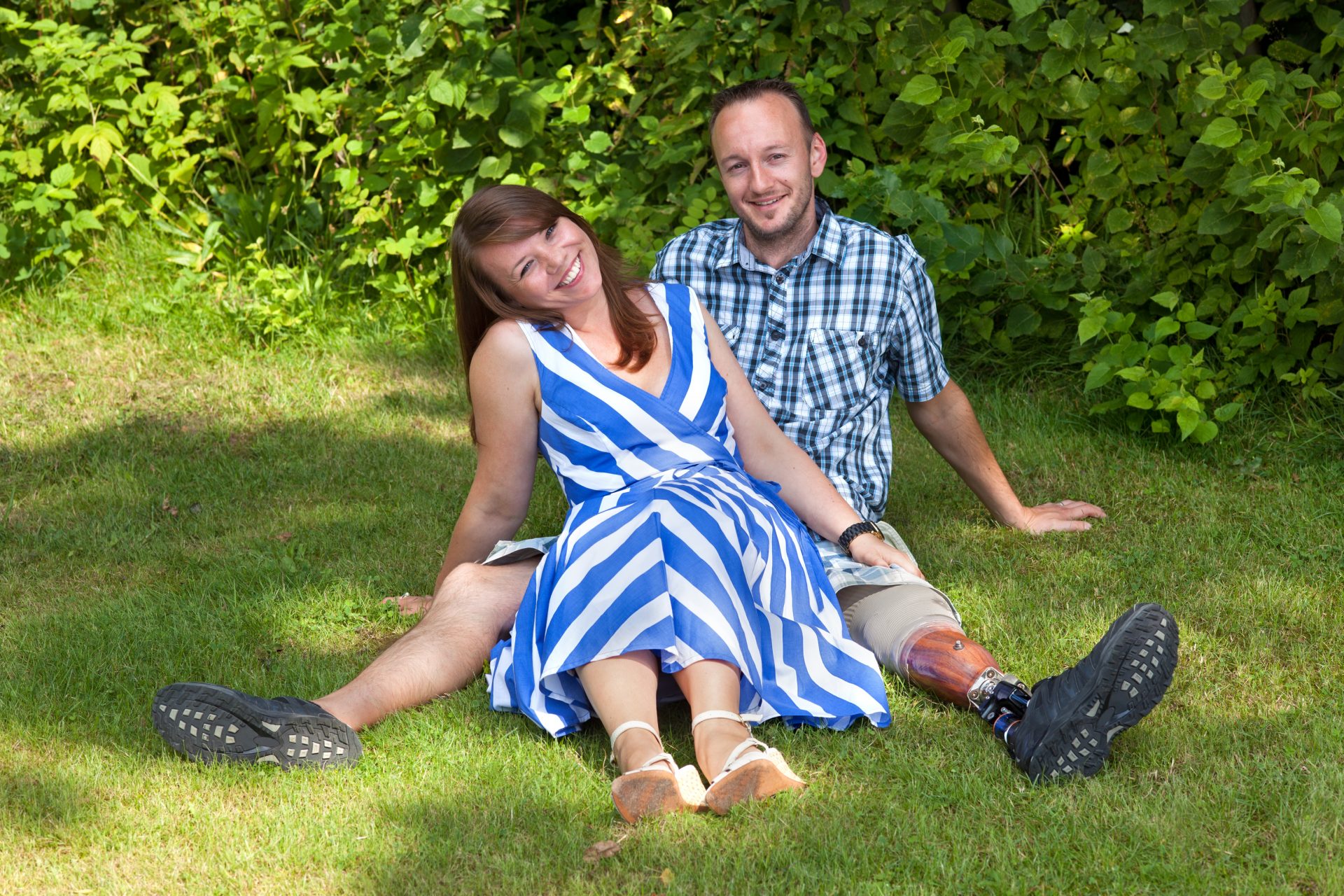
Following amputation, patients are often concerned about their appearance and how this will impact on family, friends and others. We all think about how we look.
Starting as children and throughout life, we have thoughts and feelings about body image: our shape, size and other physical attributes (such as hair, teeth and skin). Our body image can suffer even more after an amputation.
As an amputee, you not only have to deal with changes in how your body works and feels but also in how it looks. The more you focus on what is missing, not just the limb but also the things you could do before, the more likely you will become depressed and angry. Know you are still the same person inside. It may help to think of yourself as a whole person who happens to have a missing body part. Focus on learning new ways to do things you enjoyed before. You may need to be extra clever or creative and focus on the future rather than what is gone.
If you are learning to use a prosthesis, your body image is likely to change once you feel more comfortable with it. You will know this is starting to happen when you feel naked without it.
Stay involved with people you already know and share feelings for. Join an amputee support group where you meet other amputees who live full and happy lives. Talk with important people in your life about your feelings as an amputee. This includes feelings of anger, fear and frustration. It also includes how the other person feels now that you are an amputee. Your relationship is likely to be stronger after open and honest conversations like these.
We are all sexual beings. This term refers to all the ways we express loving feelings and emotions. Our whole body responds to sexual attraction. Sexuality includes feelings of arousal (expressed by touching, kissing and caressing) as well as sex (sexual intercourse, remembering that this can refer to many different styles and techniques). It is important that you talk together about how your changed body looks, feels and works. Talking about this now can help prevent misunderstanding or hurt feelings later on. Some things you can do are:
- Focus on your pleasure and your partner’s.
- Do not keep thinking about how you want to perform.
- Give yourself permission to try new ways to be sexual. After amputation, you may want to find new positions that are more comfortable. For instance you could add some pillows if you have problems with balance.
- Explore and enjoy finding out ways that work best for you and your partner.
Amputees all over the world have returned to loving, sexual relationships after their amputation. You can too. This will help with your body image, relationships and sexuality.
Continuing medical conditions such as diabetes and vascular problems can affect your sexual function, so speak to your doctor for advice and assistance. Antidepression medication is a well known cause of lowered libido and erectile difficulties. Your primary care doctor can advise you on treatments and also look at how to manage your medication if these side effects are a problem for you.
Single amputees may worry about dating post amputation. Dating is nerve racking and part of dating is being rejected or rejecting another person as not being right for you, for all manner of reasons.
Amputees who have dated post amputation found that potential partners who are interested in you as a whole person will be comfortable with your amputation.
Amputation will initially affect your self confidence and confidence is a big factor in dating. You may find that intimacy with a new partner comes more slowly than it did before as you are still building your confidence.

